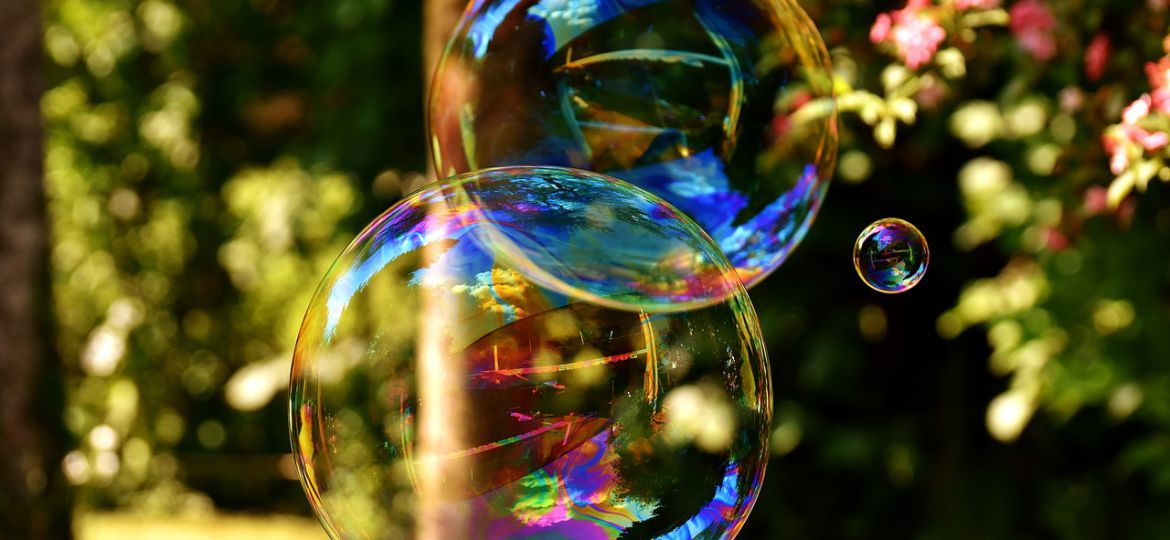
Fragile and fleeting like soap bubbles, pleasure shines with many colours. But its iridescence is frightening for many. Perhaps because its colours change in unpredictable and uncontrollable ways, and though fragile and fleeting, it is a world in itself. A world that beckons enticingly and whose gifts can surprise and open pathways to other yet unknown worlds, unendingly. Fleeting, yet unending in its promises and enchantments.
Is that why pleasure is policed and there is such fear around people being able to freely seek it? Especially, when it comes to women having the right to seek pleasure? For instance, in India, a single woman looking for pleasure might be viewed as a person with ‘loose’ moral values, a married woman who wants sex but doesn’t want to have children is looked down upon as an adult running away from her ‘responsibilities’, and a married woman with children, asking her husband for sex may be seen as a ‘slut’. A man can have endless ‘needs’, but not a woman. These are just a few examples of how a heterosexual ciswoman may be judged and admonished for choices that she may make around her sexuality and pleasure. And that is a pretty mainstream sort of person. Imagine what happens to others.
Ramya Anand writes about how sexuality and pleasure are accompanied by heavy emotions like guilt, shame, judgment, and fear. Even within so-called ‘legitimate’ relationships, pleasure is often never discussed. And so, talking to young people about sex-positivity and pleasure becomes quite a challenge (not for the young people, but for the adults around them!).
People’s experiences of sexuality are moderated by their social, cultural and political milieu. Obviously, this affects their experience of pleasure as well, especially if they seek pleasure outside of patriarchal societal norms. If a person deviates even a little from the norm, their quest for pleasure is deemed a ‘sin’, and so, with the wisdom of hindsight, Elsa Marie D’Silva writes a letter to her 16-year-old self – the sort of letter we would all have welcomed at that age, or at any age, as a matter of fact.
Abdullah Erikat urges us to question this patriarchal system, to rethink the language we use around pleasure and be able to find a safe space to practice the fundamental right to our sexual and gender identity as physically and emotionally safely as possible. This system is what constrains and binds us, and pushes some of us, as Gokul KP writes, into a love destined to remain forbidden and as Khushi Pahuja unveils, in a poem, to experience the shame and guilt that underlie a woman’s desire.
But then again, people are resilient, and we find ways to follow those scintillating bubbles that float teasingly around us, catching the light and winking naughtily. We each experience pleasure differently and come to it in different ways. Anonymous writes about a purely sexual hook-up leading to something else, and how passion and romance both need nurturing and attention in order to flourish and bloom. Asmi writes about how her understanding of pleasure has changed over the years and how she is her own best sexual partner. She also reviews the film Delta of Venus and tells us why she can watch it time and again.
Brushstrokes features Robot Hugs’ comic on the various ways that relationships and pleasure can be experienced and we have an interesting video on how a mother of two grown-up women affirms her right to seek pleasure, shocking her daughters and shattering their ideas about how their ‘Mummy should behave’. In the Poetry Corner, there is a refreshing poem about how a new crush always feels like ‘the first time’. The bubbles shine anew!
In our mid- month issue, we have Shika Aleya interviewing Ritambhara Mehta, who works with Nazariya, a Delhi-based queer feminist resource group, about questioning norms, the difficulties of talking about pleasure, and the pleasure one sometimes finds in being different.
Pleasure is found in different ways, to be sure. As a self-identified transperson Neel finds hers in becoming a womxn and as she fiercely and poetically states, “Pleasure is my song that calms dysphoria, within it is woven the fabric of sex and sexuality, and to dismiss those from feminist revolutions will be to dismiss my body and the colours that paint the setting sun, the flavours that taste of existence.”
And sometimes pleasure is better understood with the wisdom time brings. We have a Hindi translation of Elsa Marie D’Silva’s letter to her 16-year-old self written from the vantage point of many years later.
In the blog roll section we have an article from Feminism in India about how the author rebuilt a loving relationship with her body through taking nude photos of herself and posting them online. As she says, “…there it is, my body, photographed, by me.” An act of power, an act of self-love, and an act of pleasure made possible through technology. Pleasure and technology have indeed found each other and can have a strong friendship for a long time to come. Internet technology has widened the possibilities of seeking and finding pleasure and an article from GenderIT.org discusses pleasure in internet policy spaces in the context of all of us being able to use the internet in free, rights-based, affirmative and pleasurable ways.
Cover Image: Pixabay